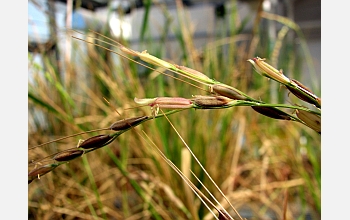 The National Science Foundation in the US has announced grants totaling US$14 million for genome studies of “economically important plants”. Among the many projects will be one on red rice (seen left, photo courtesy of Washington University St Louis), a weedy variant that contaminates rice fields in the US. It reduces yields by up to 80% and researchers hope to discover whether it originated from cultivated rice or was imported, possibly accidentally, as a weed from Asia. A similar study will focus on weedy versions of radish. This could lead to a deeper understanding of just what makes some populations weedy and invasiveness, and hence to better control. One the other hand, maybe they should just develop a local market for red rice.
The National Science Foundation in the US has announced grants totaling US$14 million for genome studies of “economically important plants”. Among the many projects will be one on red rice (seen left, photo courtesy of Washington University St Louis), a weedy variant that contaminates rice fields in the US. It reduces yields by up to 80% and researchers hope to discover whether it originated from cultivated rice or was imported, possibly accidentally, as a weed from Asia. A similar study will focus on weedy versions of radish. This could lead to a deeper understanding of just what makes some populations weedy and invasiveness, and hence to better control. One the other hand, maybe they should just develop a local market for red rice.
Other studies will look at genetic variation within cultivars of maize and pine trees and at the evolution of Brassicas, a highly diverse group. One can only hope that the information gathered will also help farmers and scientists to produce better adapted varieties for their own conditions, even if those conditions are far removed from the intensive agricultural fields of the US.